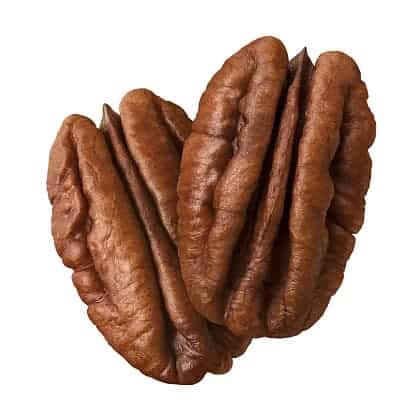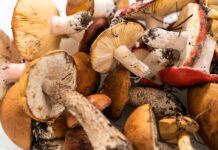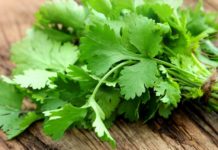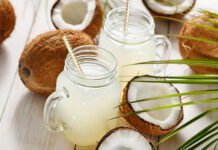
Why you should jump on the pecan bandwagon
By Lisa Cantkier, Holistic Nutritionist
Did you know April is National Pecan Month? It’s no wonder, since pecans (similar to other nuts) have so many health benefits. Nut milks such as almond and cashew have been gaining popularity in recent years as diets such as vegan and Paleo have become more widely followed. We are seeing more of them in stores and cookbooks. These milks offer whole food goodness, protein, fibre, antioxidants and lots of great vitamins and minerals. They are free of grains and dairy and the flavours keep getting better. When it comes to nuts, there is something special about the pecan—it’s unique flavour, texture and decadence (think pecan pie and candied pecans) can’t be beat. Read on about the health benefits pecans offer and then try making your own pecan milk with our easy do-it-yourself recipes: cinnamon-spiced pecan milk and perfect pecan milk.
Health Benefits of Pecans
According to The National Pecan Shellers Association (NPSA), a non-profit association dedicated to increasing public awareness of the benefits of pecans, pecans contain more antioxidants than any other nut variety according to ORAC values.
Nutrients: Pecans contain more than 19 vitamins and minerals, including calcium, vitamin A, vitamin E, folic acid, magnesium, phosphorus, potassium, B vitamins and zinc. They Pecans are also low in carbohydrates, are a source of protein and they contain fibre. The NPSA reports that pecans take longer to digest than high carbohydrate snacks, which the body burns through quickly.
Heart Health: Pecans help reduce the risk of heart disease because of their “good” heart healthy fats. They’re high in healthy unsaturated fat that can lower total blood cholesterol and preserve high-density lipoproteins (HDL) or “good” cholesterol.
Sixty percent of the fats in pecans are monounsaturated and another 30 percent are polyunsaturated, leaving very little saturated fat. Also, pecans contain no trans fat.
A 2011 research study from Loma Linda University showed the naturally occurring antioxidants in pecans may benefit heart health and disease prevention. Eating pecans increased the amounts of antioxidants in the body and reduced “bad” cholesterol (LDL).
Does all this mean you should eat pecans by the truckload or drink pecan milk by the gallon? Definitely not. Half a cup of pecans contains a whopping 377 calories (as much a complete meal). Aim for a snack of small handful of five or six, which provides about 100 calories—eating halved pecans will feel like more. Depending on the recipe and the sweeteners included, one cup of pecan milk can contain upwards of 100 calories. When making your own pecan milk (I haven’t come across any varieties available in stores), try to use a minimal amount of organic, natural sweeteners to keep it clean. Don’t drink your whole supply in one day—try to spread it out over several days.
Here are some fun facts about pecans, from The National Pecan Shellers Association (NPSA), a non-profit association dedicated to increasing public awareness of the benefits of pecans.
• Texas adopted the pecan tree as its state tree in 1919. In fact, Texas Governor James Hogg liked pecan trees so much that he asked if a pecan tree could be planted at his gravesite when he died.
• Albany, Georgia, which boasts more than 600,000 pecan trees, is the pecan capital of the United States. Albany hosts the annual National Pecan Festival, which includes a race, parade, pecan-cooking contest, the crowning of the National Pecan Queen and many other activities.
• It takes a magnificent tree to produce a great-tasting nut. Pecan trees usually range in height from 70 to 100 feet, but some trees grow as tall as 150 feet or higher. Native pecan trees–those over 150 years old–have trunks more than three feet in diameter.
• Pecans come in a variety of sizes: mammoth, extra large, large, medium, small and midget. They also come in several forms including whole pecans, pecan halves, pieces, granules and meal.
• There are over 1,000 varieties of pecans. Many are named for Native American Indian tribes, including Cheyenne, Mohawk, Sioux, Choctaw and Shawnee.
• The U.S. produces about 80 percent of the world’s pecan crop.












